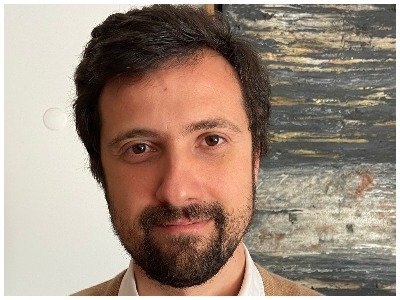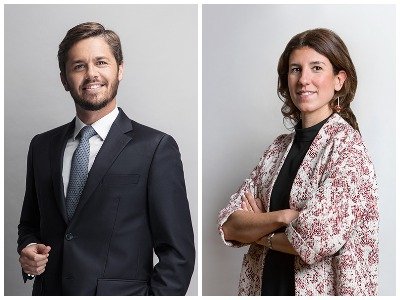Teresa Zueco, the leader in charge of Squire Patton Boggs in Spain

She was selected among the best 60 Business Law lawyers by Iberian Lawyer, and her name is recognised in the world of Mergers and Acquisitions. Near the close of 2021, she became one of Squire Patton Boggs’ star hirings, with her appointment as managing partner and leader of the Corporate, M&A and Private Equity practices in Madrid. In an exclusive interview, the lawyer talks about her decision to make the leap along with six lawyers who also announced their departure from DLA Piper, and anticipates what the firm’s strategy will be in Spain. “We are looking for talent that wants to join the team, with new ideas and the desire of being part of a project that wants to move away from conformism,” she says.
 Following the demise of Dewey & Leboeuf, where you were a partner in the corporate practice in the Paris office, you joined DLA Piper to strengthen the corporate practice as of counsel, although you became a partner shortly afterwards, a position in which you remained until last year. The announcement of your appointment as managing partner of Squire Patton Boggs came as a surprise to many. How did you and your close personal and professional entourage manage this news?
Following the demise of Dewey & Leboeuf, where you were a partner in the corporate practice in the Paris office, you joined DLA Piper to strengthen the corporate practice as of counsel, although you became a partner shortly afterwards, a position in which you remained until last year. The announcement of your appointment as managing partner of Squire Patton Boggs came as a surprise to many. How did you and your close personal and professional entourage manage this news?
Accepting the position of managing partner of Squire Patton Boggs was something I took time to consider in depth after Jonathan Jones (European Managing Partner of Squire Patton Boggs) asked me to head the Madrid office. Without a doubt, an important nudge was the willing and enthusiasm of the team of six M&A/PE lawyers who left DLA Piper to join the project with me and who are an essential part of it. Three months from our “landing”, I am happy to confirm that Squire Patton Boggs delivers: the firm’s commitment with the Madrid office is a fact and it is an excellent global platform for the development and growth of individual talent. Squire is a friendly firm, proud to give both clients and lawyers a voice, supporting their ambitions and achieving successful outcomes.
What has been your map road since you arrived in your new position? What are the milestones you have marked on the calendar for 2022?
Corporate, in particular the transactional work should be the driving force of Squire Patton Boggs in Madrid, driving and benefiting the other areas. The main objective for 2022 is to refresh and reposition the M&A/PE practice in the Spanish mid-market by strengthening and expanding our corporate department. Also in 2022, we will strengthen our practice in specific sectors such as digital/technology, by incorporating new IT/IPT specialists and in the energy sector, where we want to reinforce the regulatory and major dispute resolution areas.
You graduated in Law in Zaragoza and have LL.M degrees from Fordham University in New York and the Université Libre de Bruxelles. At what point did you decide to specialise in Corporate and M&A, specifically in energy, telecommunications and industrial sectors?
In New York I focused my training on M&A and Corporate Finance and then joined the Corporate/M&A practice of the US firm Dewey LeBoeuf. During the years I worked in the Paris office of Dewey Leboeuf, most of the transactions I was involved in were M&A in the energy sector (oil and gas assets in Africa and Latin America) and telecommunications (both infrastructure and telecoms business). My experience in the industrial sector derives from my work in Private Equity, advising on acquisitions, secondaries and exits of their investments in the industrial sector.
You have been one of the leading experts in your field during your time at DLA, leading many of the most important transactions recorded by DLA. What memories do you have of your time there? Who were your mentors?
I have fond memories of DLA and all the lawyers (and non-legal staff) I worked with and collaborated with during my almost 10 years at the firm. I have no doubt that we will continue to work together on many projects. Juan Picón was my mentor during my equity partnership process in 2016. As a curiosity, the first international law firm office that Juan Picón leaded in Spain as office managing partner was, precisely, the Squire’s Madrid office, before “re-founding” DLA in Madrid.
You have taken six lawyers from your Corporate and M&A team at DLA with you – you must have made a big break, right? What is your hiring policy for this year, and do you plan to move more teams in the firm?
Team movements are part of a firm’s dynamics and evolution. Squire has faith in Spain and it is an honor to be part of this project together with the great lawyers who came over with me and the great lawyers that were already part of the office. The goal is for the Madrid office to become a benchmark office for Squire in Europe. To achieve this, we have to expand teams and capabilities in each of the areas while maintaining the transactional practice as the fundamental driving force of the office. The recruitment policy is simple; we are looking for talent that wants to join the firm, with new ideas, with their own voice and with the enthusiasm to be part of a project that wants to move away from the conformism and rigidity of structures that often work more by inertia than by the strength and vision of their lawyers.
Apart from promoting the firm’s Corporate and M&A area, you will have other actions planned as part of the strategic plan for the firm. Will you be in charge of their design or will it come “from above”? What major objectives does the firm expect the Madrid office to achieve under your mandate and in how long will it take?
Squire Patton Boggs’ strategy is global although it is implemented at local level. Squire Patton Boggs has made a firm commitment to its development and expansion in continental Europe. Spain is a key part of this expansion. Our goal is that by 2026 Squire Patton Boggs in Madrid will double its talented roaster of lawyers and will be a benchmark international firm in Spain in M&A and PE mid-market. The Madrid office will continue to be multi-disciplinary, building on the firm’s global strength in sectors such as private equity mid-market, infrastructure and technology.
In recent times, there has been a trend that managing partners are increasingly moving away from the operations themselves to focus more – almost exclusively – on what is known as the “new management” or management. This will perhaps depend on the size of the staff in question, I imagine. What is your view on this?
Every firm, like every company, has a different management model. Management depends fundamentally on the origin, size and culture of each firm. Currently, most of the office managing partners in Spain are practicing lawyers, that is our essence and, somehow our credibility. In my opinion, effective legal management cannot be detached from the clients’ concerns, nor from the day-to-day work of lawyers. Becoming managing partner is to accept an additional daily workload in order to lead and develop a project during a defined period of time, with the agreement and collegiality of the other partners. Regardless of the model, the managing partner of a law firm office cannot and should not be isolated from the reality of the lawyers in her office and the business of the firm, should be connected with the whole team: partners, lawyers and non-legal staff, have “the best ears” in the office, be good at problem-solving, be results-oriented, methodical but flexible, be accountable for her decisions and, above all, know when to leave the management position.
Correct me if I am wrong but, looking at the legal market, it seems that 2021 has been a very intense year, in which the forces have been mainly directed to the creation, detection or development of business. Which sectors have been the most fruitful in this sense? After these two years of “pandemic transition”, is 2022 the “moment of truth”?
Private Equity has led the M&A market in 2021. In terms of sectors, there have been no major changes; by volume the champions are energy, real estate, and telecom/digital. Other sectors that have become fashionable because of the pandemic have been healthcare in a broad sense and maybe logistics. How2022 will unfold, forecasts for the second half of a year reveal certain uncertainty, so I would not dare to speak of a “moment of truth”. Yet, in what looks set to be a long post-pandemic period, we will continue seeing investments related to digital transformation and even a reboot of the industrial sector always under investment parameters in which sustainability is an important element.
In recent interviews you have given, you have spoken of the existence of a great appetite for investment by funds in Spain, Iberia or Europe as a whole. What are the common requirements that these funds bring with them? Do they require – for example – the well-known skin in the game, i.e. that all those involved put their “money where their mouth is”?
The requirements and investment criteria for funds in Spain are the same as for the rest of Europe. Spain is attractive because of the quality of the assets, including its human capital, the European regulatory framework and the size of our market. The new common element is the need to pay attention to ESG criteria.
Successful woman you were selected by Iberian Lawyer as one of the best lawyers in Iberian Business Law by Iberian Lawyer. Yours is a clear example that the rise of women in positions of power in the legal world is a fact and is unstoppable. What sacrifices have you had to make to get here? Do you support other women to encourage this trend to continue growing?
I am very grateful for the recognition by Iberian Lawyer; it is an honour to share the distinction with many colleagues, all of them great practitioners. I believe I have not made more sacrifices than the rest of my colleagues, being a partner of a firm is a question of work and motivation – the partnership is nothing more than the recognition of that work and motivation. Accepting a management position is a personal and professional challenge. In my case, I wanted to contribute beyond client work and, from a decision-making position, address the challenges of our sector. In my opinion, our biggest challenge is to retain and motivate talent. In my view, the most effective way to support talent, both male and female talent, which is fundamental to providing good service to clients and growing the firm, is to shorten the career path in the firm, to be generous so that our lawyers do not become discouraged, and to reward them individually depending on their commitment and effort. If we succeed in motivating, shortening the career and customising their efforts and commitment on individual basis, we will see many more female partners in law firms.
To read the full interview on issue number 111 click here.












